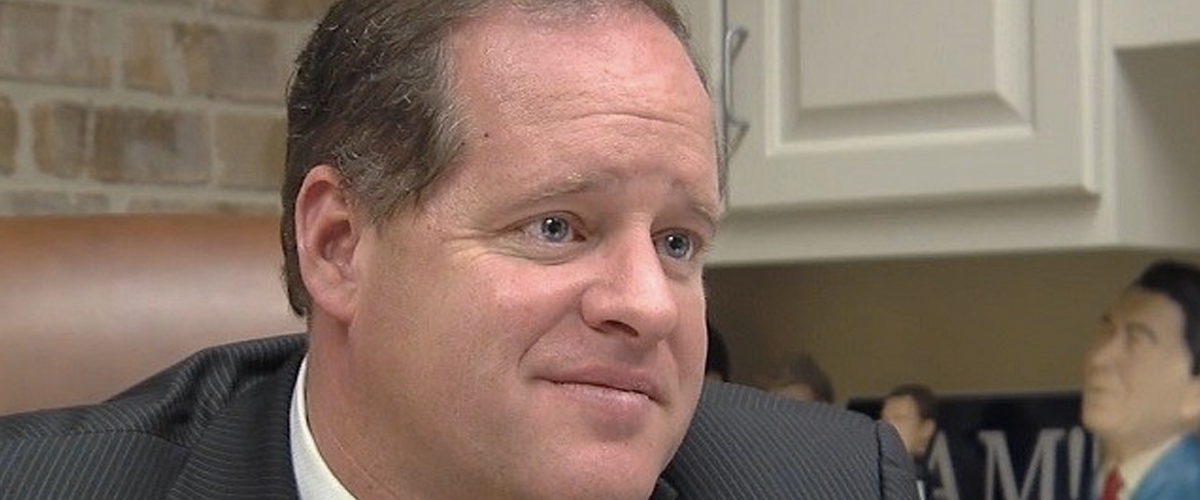By Josh Moon
Alabama Political Reporter
State Sen. Cam Ward is still trying to fix Alabama’s judicial system.
He doesn’t put it that way. The Republican state senator from Shelby County instead just keeps saying he has a problem with this thing or that thing, and he wants to fix it all.
Like charging 13- and 14-year-olds court costs and fees. That’s a thing Ward wants to fix.
Because we do that in Alabama — charge 13-year-olds court costs. We hit juveniles with some of the same fees that we charge adults. Except, adults have jobs and various means to repay those costs. Children don’t.
So, here’s what happens: Those unpaid fees assessed to juveniles remain with them until adulthood, gathering interest and other fees all the while. By the time the kid is 17 or 18 and able to get a job, he or she either can’t get hired because of the credit knocks or the payback options suck up most of the minimum wage pay.
“It’s just a terrible way to do things and you’re setting these kids up to fail,” Ward said this week. “It makes no sense to charge these kids with court costs and fees. Restitution, I understand. Make people pay for their crimes, I’m all for that. But we don’t need to fund government on the backs of kids.”
Making that change is part of a sweeping bill Ward plans to introduce next week in the Senate judiciary committee that he chairs. Much of the bill’s substance originated directly from recommendations gathered by the Governor’s Juvenile Justice Task Force, which studied the state’s juvenile system, gathered suggestions from those who work in and around it and made several proposals in December.
But the judicial changes being proposed by Ward won’t stop with only that bill.
In all, he has 10 different bills that deal with some matter within Alabama’s justice system, and six that deal directly with court funding issues.
Most of those six bills have one goal in mind: “The goal is to finally determine what constitutes an indigent individual … and stop the issuing of fines or jail time to people who can’t pay,” Ward said.
Municipalities jailing indigent people simply because they can’t pay a fine has caused a number of problems for cities across Alabama, including in Montgomery, where a municipal court judge was removed from the bench by the Judicial Inquiry Commission over the practice. The city was also successfully sued in federal court, and it was shamed into breaking ties with a private probation company.
Ward’s bill aims to once and for all end that practice, allowing mayors to remit fines for the indigent and providing more leeway in imposing sentences.
“I have a problem with hitting those who can least afford it with a bunch of fees because we didn’t do the right thing,” Ward said. “That’s what this boils down to — a bunch of us, and I’m to blame right there with everyone else, took the easy way and started tacking on fines to pay for services (instead of raising taxes).”
Those fines come in the way of arbitrary court costs that often have no rhyme or reason, and even the judges who impose them often can’t tell you where the money goes. They’re the reason that a $25 speeding ticket costs $250 and that filing a complaint in any court costs $250-plus in most counties, effectively eliminating the judicial system as a means of poor people solving their disputes.
“What happens,” Ward said, “is that you’ll get county commissioners coming to legislators — they’ve come to me — and asking for funding, but they don’t want to ask for a tax because of the way it looks. So they ask for a dollar fee. And we’ve gone along with it.”
Of course, that reality poses another problem for Ward: While what he’s doing is indisputably the right thing, those fees are in place to prop up some portion of our courts or county government. Removing those fees from the indigent and juveniles will cost an already severely underfunded court system money.
Ward believes he can make up some of the lost funding through small tweaks, such as better oversight and more uniformity between the counties. One of those changes, in another bill sponsored by Ward, will be to allow private judges to hear more cases if both sides of a dispute agree.
But that won’t cover it all, and at some point Alabama will have to decide if it wants to fund its legal system.
“We’re going to have to have revenue from somewhere,” Ward said. “There’s no way around that.”
The prospect of raising taxes to do so — a mortal sin in conservative politics — doesn’t seem to scare Ward.
“We need to do the right thing,” he said. “It’s as simple as that.”





















































